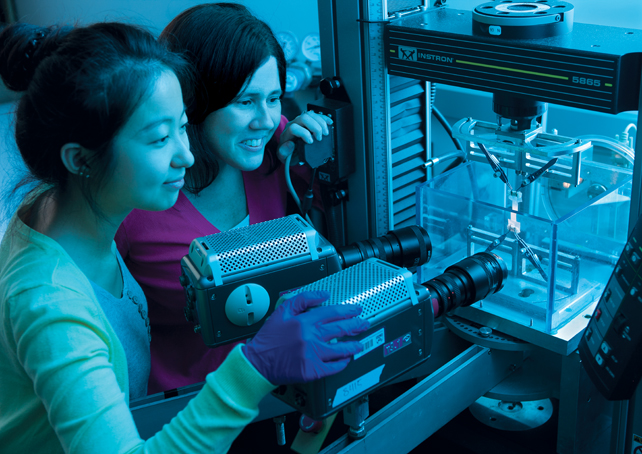Featured Stories
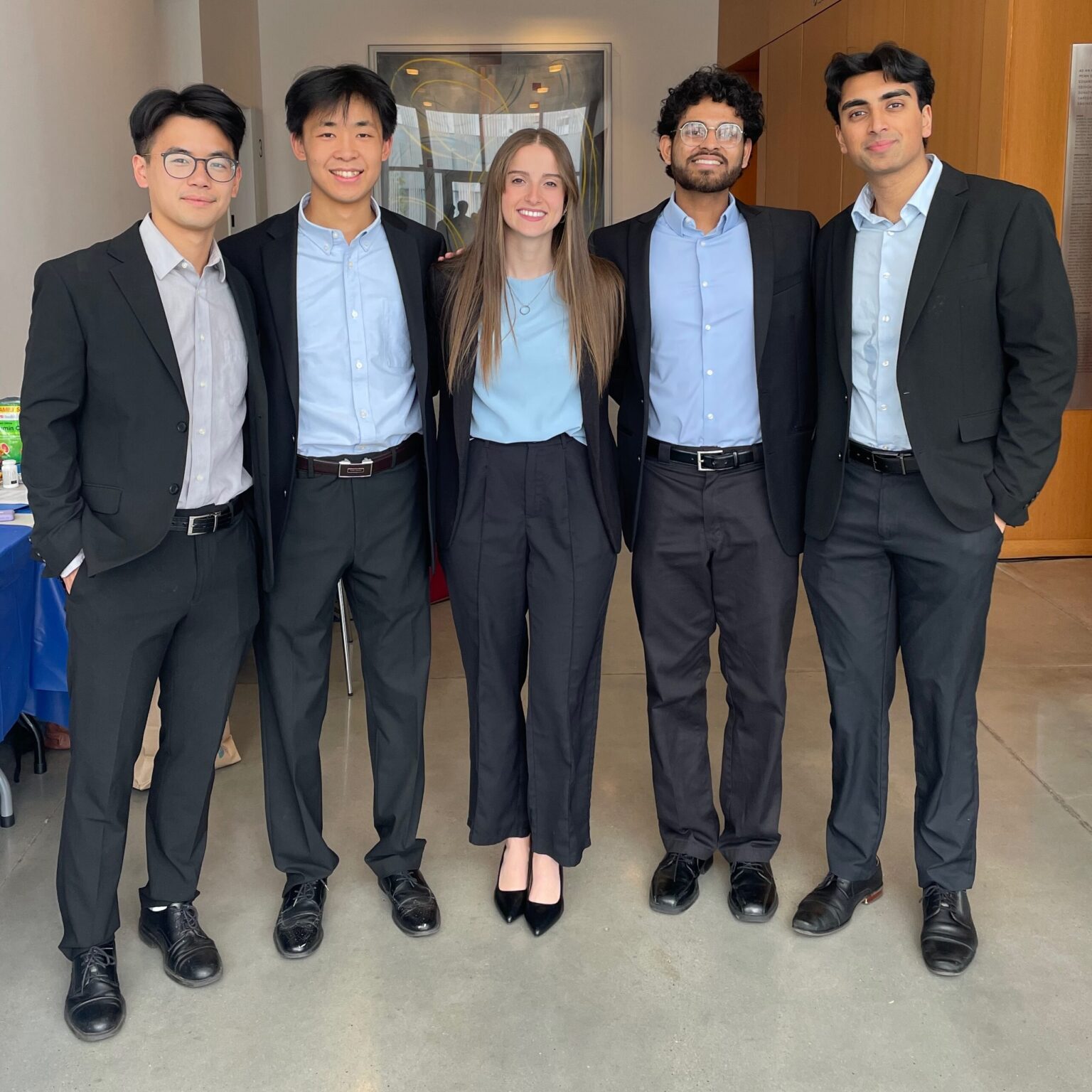
Senior Design Awards Spotlight Part 1 - Team ReFlex
From the beginning, Team ReFlex set out to do something ambitious: create a system that could help stroke patients regain motor function by aligning therapy with the brain’s intent to move. The idea emerged from a shared interest in neurotechnology, combined with a diverse set of technical backgrounds—bioengineering, robotics, computer science, electrical engineering, and data science. After months of conversations with professors, clinicians, and researchers, the concept took shape: an integrated platform that uses EEG signals and artificial intelligence to detect motor intent and trigger functional electrical stimulation (FES). READ MORE
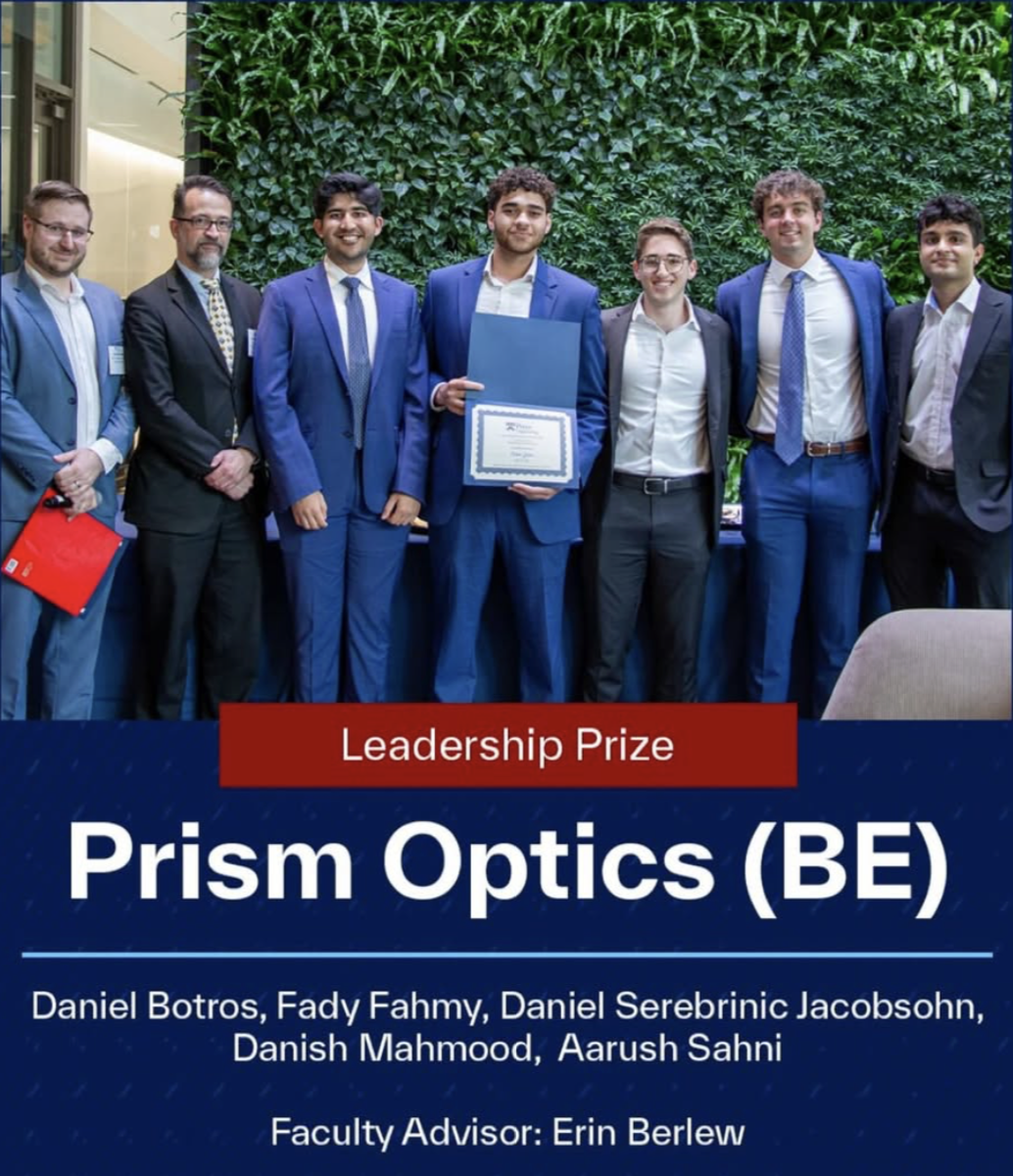
Senior Design Awards Spotlight Part 2 - Team Prism Optics
Across the globe, more than a billion people lack access to basic vision care, often simply because there aren’t enough optometrists to perform eye exams (Staff, One billion have preventable vision impairment 2019). Team Prism Optics took on this challenge by building a device that automates the process of determining an eyeglass prescription, offering a low-cost, portable solution that can be used without the need for a trained clinician. READ MORE
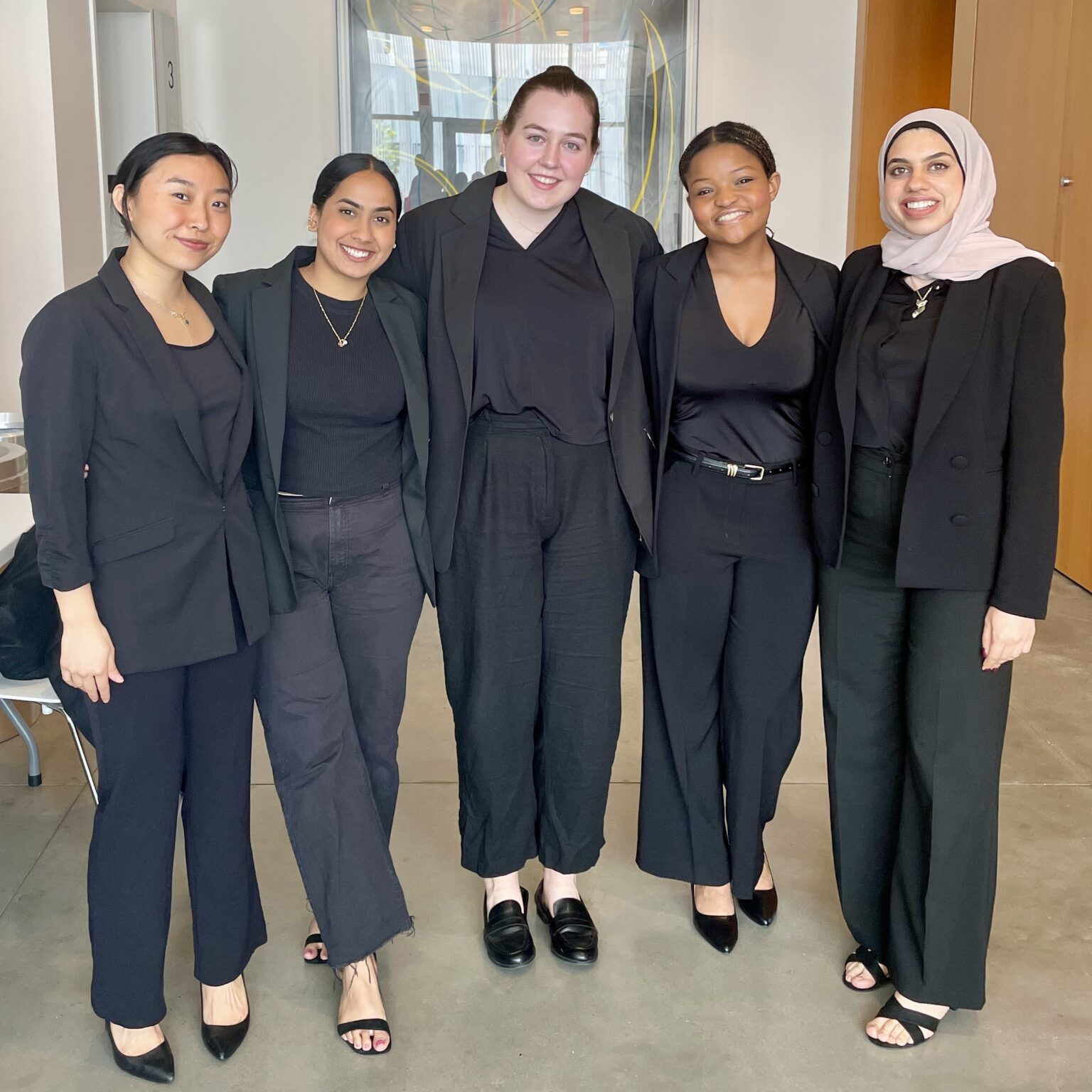
Senior Design Awards Spotlight Part 3 - Team PRIME
For Team PRIME, the mission was clear: create a tool that could help detect sepsis earlier—when timing can mean the difference between life and death. Their project centers around a device that automatically measures capillary refill time, a simple but powerful indicator of blood perfusion and circulation quality. By providing continuous, automated monitoring, PRIME aims to improve clinical decision-making in intensive care units and emergency settings. READ MORE
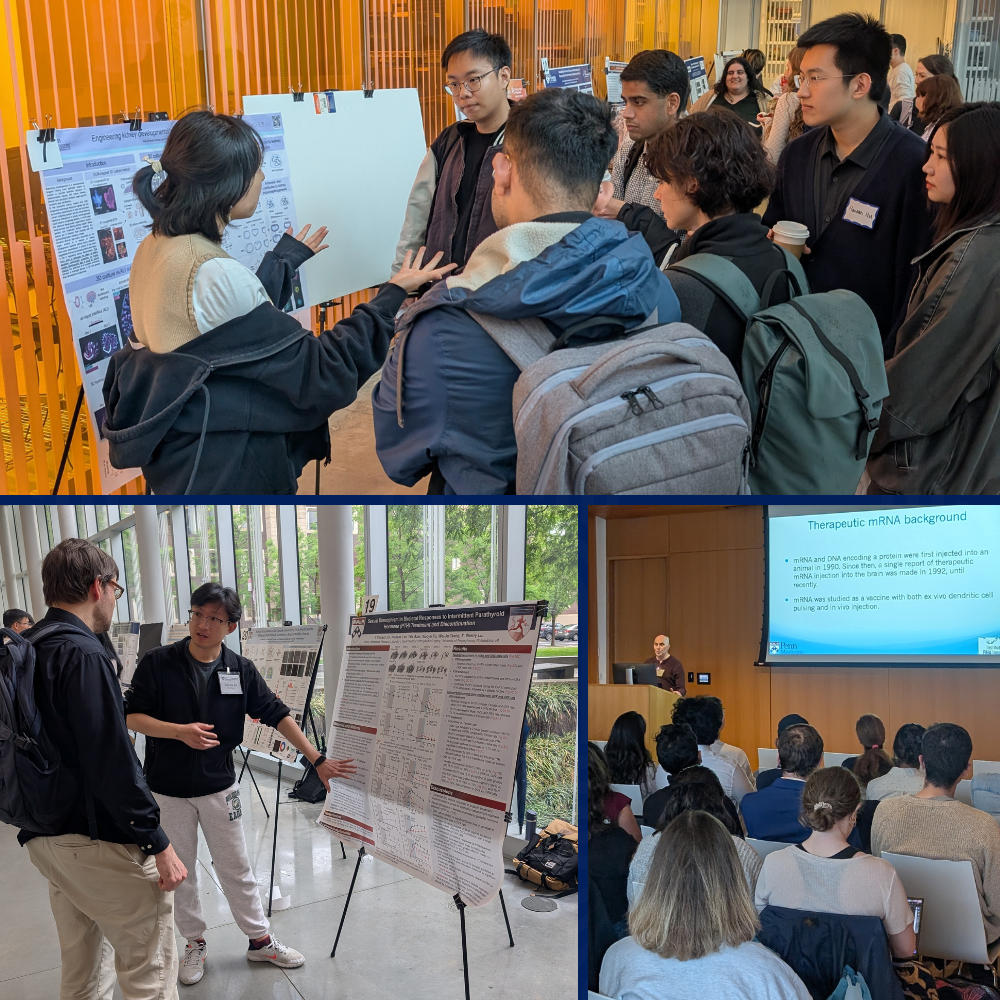
2025 Bioengineering Graduate Research Symposium
The 2025 Bioengineering Graduate Research Symposium brought Penn’s brightest minds together for a day of cutting-edge discovery and community connection. Held at the Singh Center for Nanotechnology, the event featured breakthrough student research across immunotherapy, neuroengineering, regenerative medicine, and more—capped by a keynote from Nobel Laureate Drew Weissman on the future of mRNA science. With lively presentations, interactive poster sessions, and a collaborative spirit throughout, the symposium celebrated the innovation and impact at the heart of Penn Bioengineering. READ MORE
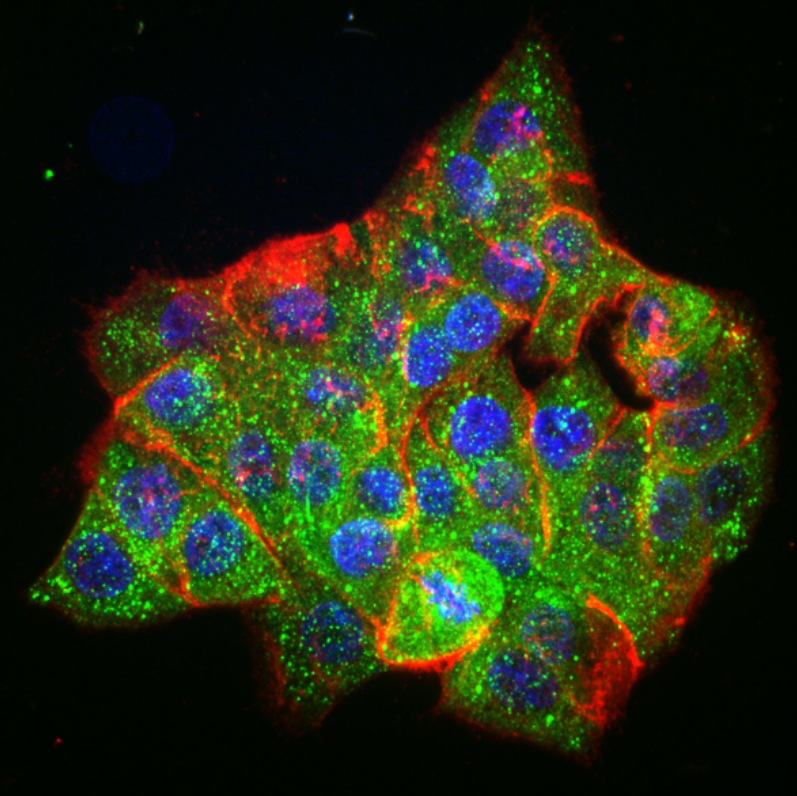
Optogenetic Functional Profiling Indicates New Mechanisms of Drug Tolerance in Cancer Cells
Penn Bioengineering’s Lukasz J. Bugaj is leading pioneering research into one of cancer therapy’s greatest hurdles: drug resistance. In a recent study from his lab, Bugaj and his team revealed how certain oncogenes not only drive tumor growth but also manipulate cellular signaling in ways that promote resistance to treatment. Using a novel technique called optogenetic functional profiling, the study uncovered surprising mechanisms by which cancer cells adapt and survive—findings that could inform smarter, more durable therapies. Bugaj’s work exemplifies the cutting-edge innovation powering Penn’s fight against cancer.
READ MORE
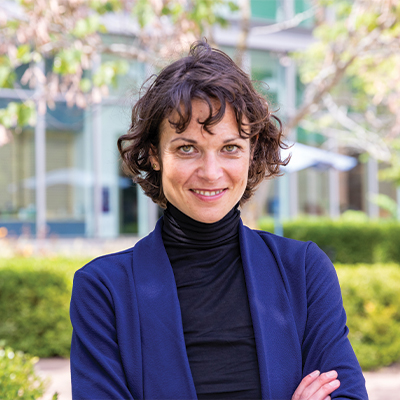
Loebel Lab Arrives in 2025
Claudia Loebel, Reliance Industries Term Assistant Professor, is set to launch her innovative lab at Penn Bioengineering and the Center for Precision Engineering for Health in January 2025. With a dual background in medicine and engineering, Dr. Loebel leads groundbreaking research on how mechanical forces shape organ development and regeneration—work that could pave the way for transformative therapies. Her interdisciplinary team brings together diverse perspectives to tackle pulmonary health at the cellular level, supported by prestigious honors including the BMES CMBE Rising Star Award and funding from the Packard Foundation. READ MORE
BE News
Armoring CAR T Cells to Prevent Self-Sabotage and Better Fight Cancer
04.30.2025 | Read More
Penn Students Develop AI-Driven Solution to Transform Senior Care
04.25.2025 | Read More
Class of 2025 President’s Engagement, Innovation, and Sustainability Prize Winners Announced
04.17.2025 | Read More
BE Events
BE Doctoral Dissertation Defense: Aoife O’Farrell
BE Doctoral Dissertation Defense: Michael Yao
BE Doctoral Dissertation Defense: Brian-Tinh D. Vu
Why Penn Bioengineering?
Welcome to Penn, home to one of the oldest and most successful bioengineering departments in the United States. Our undergraduate and graduate programs consistently rate among the top 10 in the country. Bioengineering capitalizes on Penn’s great institutional strengths, including a compact urban campus of 12 separate schools, geographic proximity linking the engineering and medical schools within one city block, and a collaborative, integrated environment.
Learn More
